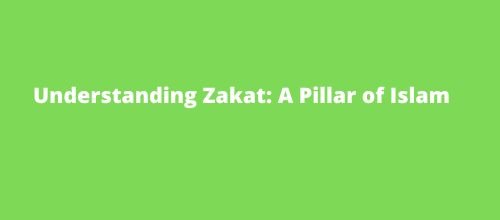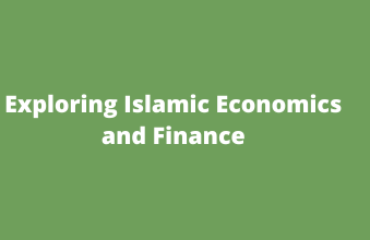Zakat, one of the Five Pillars of Islam, is not merely an act of charity but a fundamental obligation for all Muslims who meet certain financial criteria. Derived from the Arabic root “zakaa,” which means purification, growth, and blessings, Zakat purifies one’s wealth and helps reduce inequality in society by supporting the needy. It reflects the spirit of social justice in Islam and is meant to foster solidarity within the Muslim community.
The Importance of Zakat in the Qur’an
The Quran emphasises the significance of Zakat as a means of spiritual purification and societal well-being. It is often mentioned alongside Salah (prayer), underlining its importance in Islamic practice.
One of the most cited verses about Zakat is from Surah Al-Baqarah:
“وَأَقِيمُوا الصَّلَاةَ وَآتُوا الزَّكَاةَ وَارْكَعُوا مَعَ الرَّاكِعِينَ”
“And establish prayer and give Zakat, and bow with those who bow [in worship and obedience]”
(Qur’an 2:43)
This verse demonstrates that Zakat, like Salah, is a compulsory act of worship. It is not merely recommended but mandated for Muslims who possess the required wealth.
Another important verse that emphasises the ethical aspect of Zakat is:
“خُذْ مِنْ أَمْوَالِهِمْ صَدَقَةً تُطَهِّرُهُمْ وَتُزَكِّيهِمْ بِهَا”
“Take from their wealth a charity by which you purify them and cause them increase, and invoke [Allah’s blessings] upon them.”
(Qur’an 9:103)
Here, the Qur’an teaches that Zakat not only purifies the wealth of the giver but also elevates them spiritually and brings blessings upon the wealth that remains.
The Significance of Zakat in Hadith
The Hadith further stresses the importance of Zakat. The Prophet Muhammad (peace be upon him) repeatedly stressed the importance of Zakat as a means of ensuring the well-being of society.
In a well-known Hadith narrated by Ibn Abbas (may Allah be pleased with him), the Prophet (peace be upon him) said:
“فَأَعْلِمْهُمْ أَنَّ اللَّهَ افْتَرَضَ عَلَيْهِمْ صَدَقَةً تُؤْخَذُ مِنْ أَغْنِيَائِهِمْ فَتُرَدُّ فِي فُقَرَائِهِمْ”
“Tell them that Allah has enjoined upon them a charity (Zakat) that is to be taken from the rich among them and given to the poor among them.”
(Sahih al-Bukhari, Hadith 1395)
This Hadith highlights the communal role of Zakat in redistributing wealth to reduce poverty. It confirms the view that Zakat is an obligatory system designed to prevent the hoarding of wealth and ensure that those in need are cared for.
Who Must Pay Zakat?
Zakat is obligatory for Muslims who meet the Nisab, which is the minimum amount of wealth one must possess before they are liable to pay Zakat. The Nisab is typically calculated based on the value of 85 grams of gold or 595 grams of silver.
Eligible assets for Zakat include:
- Cash and savings
- Investments (stocks, bonds, etc.)
- Gold and silver
- Business goods
- Agricultural produce
- Livestock
Zakat is calculated at 2.5% of one’s qualifying assets and is usually paid annually.
Who Is Eligible to Receive Zakat?
The Qur’an specifies eight categories of people who are entitled to receive Zakat in Surah At-Tawbah:
“إِنَّمَا الصَّدَقَاتُ لِلْفُقَرَاءِ وَالْمَسَاكِينِ وَالْعَامِلِينَ عَلَيْهَا وَالْمُؤَلَّفَةِ قُلُوبُهُمْ وَفِي الرِّقَابِ وَالْغَارِمِينَ وَفِي سَبِيلِ اللَّهِ وَابْنِ السَّبِيلِ”
“Zakat expenditures are only for the poor and for the needy and for those employed to collect [Zakat] and for bringing hearts together [for Islam] and for freeing captives [or slaves] and for those in debt and for the cause of Allah and for the [stranded] traveler.”
(Qur’an 9:60)
These categories include the poor, the needy, those employed to collect Zakat, those whose hearts need reconciliation, captives, those in debt, those striving in the path of Allah, and wayfarers or travelers in need.
The Social and Spiritual Benefits of Zakat
- Purification of Wealth: As mentioned in the Qur’an, Zakat purifies the wealth of the giver, ensuring that their income is ethically clean and free from greed or exploitation.
- Reduction of Poverty: Zakat acts as a form of wealth redistribution, ensuring that the poor and needy in society are supported and not left behind.
- Spiritual Growth: The act of giving Zakat fosters humility, reduces attachment to material wealth, and promotes a sense of empathy and responsibility toward others.
- Community Building: By providing for the less fortunate, Zakat strengthens the bonds within the Muslim Ummah (community) and creates a more cohesive society.
Zakat is a central aspect of Islamic belief and practice, playing a crucial role in maintaining the social and economic balance within Muslim communities. By fulfilling this obligation, Muslims not only purify their wealth but also contribute to the betterment of society, uplift the needy, and foster a spirit of compassion and unity.
As the Qur’an says:
“وَمَا تُقَدِّمُوا لِأَنْفُسِكُمْ مِنْ خَيْرٍ تَجِدُوهُ عِنْدَ اللَّهِ”
“And whatever good you put forward for yourselves—you will find it with Allah.”
(Qur’an 2:110)




